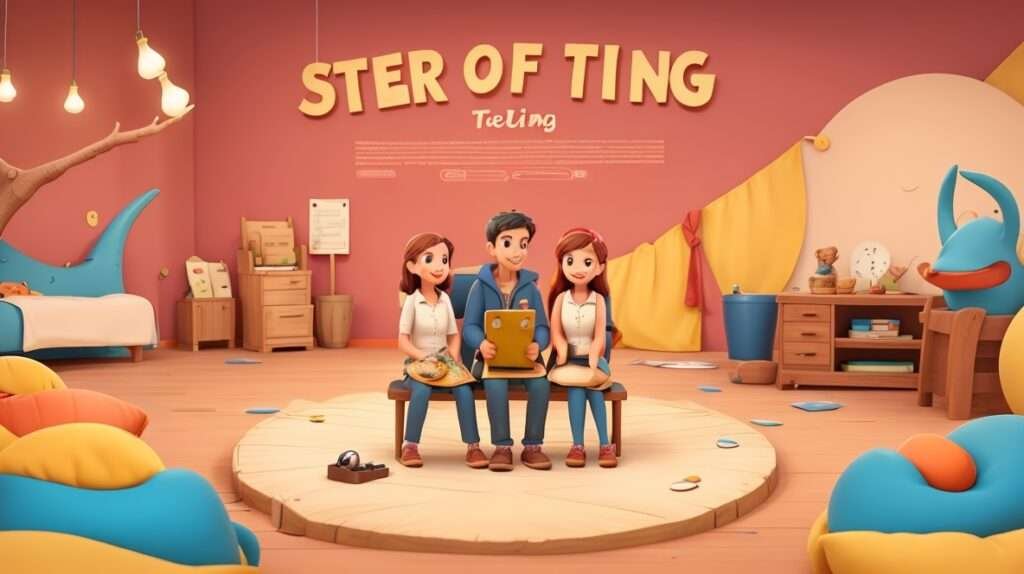The Magic of Emotional Storytelling

Emotions are like the glue that holds people together. In the world of digital marketing, knowing how to use Emotional Storytelling is like having a superpower to create strong connections with your audience. Imagine it as a magical world of stories where words build bridges between your brand’s feelings and your audience’s hearts.
The Power of Emotion in Digital Marketing
In today’s digital age, where algorithms and analytics often dictate our marketing strategies, it’s easy to overlook the human element at the core of every successful campaign. Amidst the numbers and graphs, we must remember that our audience consists of real people, each with their own feelings, dreams, and desires. This is where the magic of Emotional Storytelling comes into play, transforming marketing from a transactional experience to a deeply emotional journey.
Why Emotion Matters in Storytelling
The Heart of Emotional Storytelling
At the core of every compelling story lies the power of emotion. Whether it’s a heartwarming tale of triumph over adversity or a suspenseful narrative that keeps you on the edge of your seat, stories have the remarkable ability to evoke feelings and establish connections. This is because our brains are wired to respond to stories.
The Pillars of Effective Emotional Storytelling
When we hear a captivating story, our brains release oxytocin, often referred to as the “love hormone.” This chemical not only makes us feel more connected to the story and its characters but also enhances our ability to remember the information conveyed. In essence, Emotional Storytelling isn’t just about engaging emotions; it’s also about improving information retention.
Relatability: Connecting Through Shared Experiences
Conflict and Resolution: Every powerful story features a conflict that needs resolution. This mirrors the challenges your audience faces. When you demonstrate how your product or service can help them overcome these obstacles, you’re not just selling; you’re offering a solution to their problems.
Conflict and Resolution: A Journey to Overcome Challenges
Authenticity: Authenticity is the cornerstone of Emotional Storytelling. Your audience can discern when you’re being genuine and when you’re simply trying to manipulate their emotions. Share real stories from your brand or your customers’ experiences. Authenticity builds trust and nurtures a deeper emotional connection.
Brands That Have Mastered Emotional Storytelling
Nike: The sports giant has perfected the art of tapping into emotions. With its iconic “Just Do It” campaign, Nike has inspired countless individuals to pursue their dreams, no matter the hurdles. These stories are about pushing boundaries, overcoming setbacks, and achieving greatness.
Coca-Cola: Coca-Cola has been touching our hearts for years with its heartwarming holiday commercials. These stories revolve around themes of unity, togetherness, and the joy of sharing moments with loved ones. They capture the essence of the holiday season and the emotions that come with it.
Apple: Apple’s product launches are nothing short of theatrical performances. They are meticulously orchestrated to tell a story of innovation, creativity, and a brighter future. Through these events, Apple doesn’t just showcase its products; it narrates a story of how technology can enhance our lives.
Crafting Your Brand's Emotional Story
Now that we’ve explored the profound impact of Emotional Storytelling, let’s delve into how you can craft your brand’s story to connect with your audience on a deeper level:
Know Your Audience: Before you can tell a compelling story, you must understand who you’re telling it to. Thoroughly research your audience to discover their pain points, values, and aspirations.
Identify Your Brand’s Values: What does your brand stand for? What are its core values? These should align with the values of your target audience. When your values resonate, an emotional connection is established.
Choose the Right Platform: Different platforms cater to different types of storytelling. Whether it’s a blog post, a video on YouTube, or a series of Instagram stories, select the platform that best suits your message and your audience’s preferences.
Be Consistent: Your brand’s story should be consistent across all channels and touchpoints. This consistency reinforces the emotional connection you’re building with your audience.
Measure and Adapt: Monitor the success of your Emotional Storytelling efforts. Analyze metrics like engagement, shares, and conversion rates. If something isn’t working, be willing to adjust your approach.
Emotional Storytelling is the alchemy that transforms your brand from a mere entity to an emotional companion in the lives of your audience. By understanding the psychology behind storytelling and embracing the core elements of relatability, conflict and resolution, and authenticity, you can weave narratives that resonate deeply with your target audience.
Remember, people may forget what you say, but they will never forget how you made them feel. Utilize the magic of Emotional Storytelling to evoke emotions, nurture connections, and cultivate lasting relationships with your customers. In a world increasingly dominated by screens, it’s the emotional touch that distinguishes your brand and ensures its place in the hearts of your audience.


